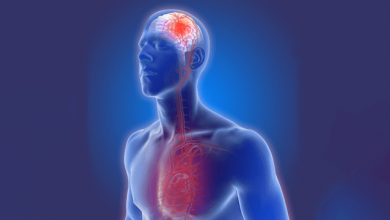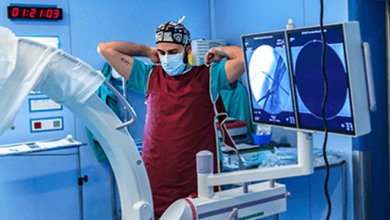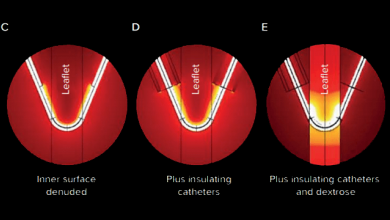Search results
Author(s):
Darwin Jeyaraj
,
David S Rosenbaum
Added:
3 years ago
Heart disease is the leading cause of death in the US with 700,000 deaths annually, of which 460,000 are attributable to sudden cardiac death (SCD). SCD is usually attributed to ventricular fibrillation (VF). Despite recent reductions in cardiac mortality from other causes, the incidence of SCD remains high with minimal decline in the last decade. The large majority of patients who suffer life…
View more
Amino-terminal Pro-B-type Natriuretic Peptide Testing - Past, Present, and Future Applications
Author(s):
Shanmugam Uthamalingam
,
James L Januzzi
Added:
3 years ago
Article
Author(s):
Naga Venkata Pothineni
,
Srikanth Vallurupalli
Added:
3 years ago
Atrial fibrillation (AF) is the most common clinically relevant supraventricular arrhythmia. AF is a leading risk factor for stroke and accounts for about one-third of all ischemic cerebrovascular events.1 The last two decades have witnessed a paradigm shift in the management of AF with the development of catheter ablation and improvements in anticoagulant therapies. In this review, we discuss…
View more
Author(s):
Michael N Young
,
Sammy Elmariah
Added:
3 years ago
Severe aortic valve stenosis (AS) is chronic, progressive illness that confers significant morbidity and mortality. Once symptomatic, patients with severe AS will ultimately succumb to the disease if it is not promptly corrected.1 Historically, surgical aortic valve replacement (SAVR) served as the exclusive therapeutic option to correct this mechanical problem.2 However, in 2002, Alain Cribier…
View more
Author(s):
Gil J Gross
Added:
3 years ago
Rhythm disorders, independent of structural congenital heart disease, have been described with myriad pediatric syndromes.Reviewing all pediatric syndromes associated with rhythm disorders is beyond the scope of this text.However, arrhythmia as a common or defining clinical feature of a pediatric syndrome is relatively rare. A representative sample of pediatric syndromes that prominently feature…
View more
Author(s):
Naoya Oketani
,
Koonlawee Nademanee
Added:
3 years ago
Atrial fibrillation (AF) is the most common cardiac arrhythmia, becomes more prevalent with age,1 and is associated with an increased long-term risk for stroke, heart failure, and all-cause mortality.2 AF can occur in the absence of underlying heart disease, but is more frequent in connection with mitral valve disease, heart failure, ischemic heart disease, and hypertension.3
Over the past…
View more
Author(s):
James A Reiffel
Added:
3 years ago
Atrial fibrillation (AF) is the most frequent serious arrhythmia encountered in clinical practice. It is usually symptomatic; can reduce quality of life; commonly results in hospitalization; typically requires multiple drugs in its treatment; and can result in heart failure, embolization and its consequences, and death. Even when AF itself does not directly provoke symptoms leading to its…
View more
Author(s):
Deepak Padmanabhan
,
Sandeep Shankar
,
Avinash Chandrashekharaiah
,
et al
Added:
3 years ago
Ionizing radiation is a workplace hazard that goes undetected. In the cardiac catheterization laboratory, where various interventional and electrophysiological procedures are done, physicians and other staff are exposed to ionizing radiation daily. The amount of radiation exposure in the catheterization laboratory is exponentially more compared to other departments using X-ray and fluoroscopy,…
View more
Author(s):
Todd Rudo
Added:
3 years ago
Atrial fibrillation (AF) is the most common arrhythmia encountered in clinical practice, with a prevalence that substantially increases with age. Both the loss of atrial mechanical function and a rapid, irregular ventricular response contribute to potentially significant symptoms, including palpitations, fatigue, chest discomfort, light headedness or syncope. Additionally, AF is associated with a…
View more
Author(s):
Jaffar M Khan
,
Toby Rogers
,
Adam B Greenbaum
,
et al
Added:
3 years ago












 « First
« First